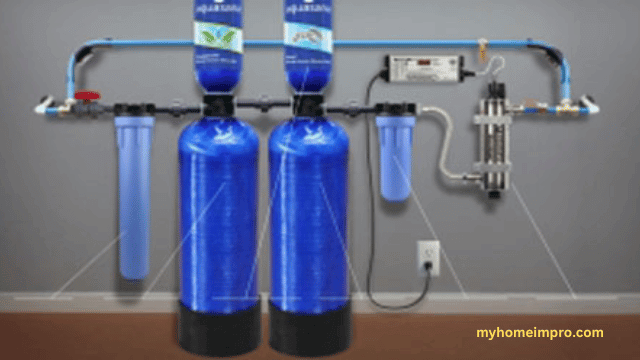Water filtration systems are an important part of any home, and choosing the right one can be tricky. This guide will help you choose the best water filtration system for your needs.
There are many different types of water filtration systems on the market, and each has its advantages and disadvantages. The most important thing to consider when choosing a water filtration system is what contaminants you need to remove from your water. Some systems are designed to remove specific contaminants, while others are designed to provide general filtration.
Having a Professional Water Test
Table of Contents
Before considering a water filtration system, you first need to know what’s in your water. The only way to know for sure is to have your water tested by a professional. This will give you a list of contaminants that are in your water, as well as their concentration levels.
Once you have this information, you can start looking at different water filtration systems and decide which one is best for your needs.
What is a Whole House Water Filtration Systems?
A whole-house water filtration system is a system that filters all of the water that comes into your home. These systems are typically installed at the point where water enters your home, and they filter all of the water before it goes to any of your fixtures or appliances.
Whole-house water filtration systems are a great option for families who want to make sure that all of the water in their homes is clean and safe. These systems are also a good choice if you have specific contaminants that you need to remove from your water.
What is a Point-of-Use Water Filtration Systems?
A point-of-use water filtration system is a system that is installed at a specific fixture or appliance in your home. These systems filter the water before it goes to the fixture or appliance, and they are typically used in addition to a whole-house filtration system.
Point-of-use water filtration systems are a good choice if you have specific contaminants that you need to remove from your water, or if you want to make sure that the water at a specific fixture or appliance is clean and safe.
What Types of Filtration Systems Are There?
There are many different types of filtration systems on the market, and each has its own set of benefits and drawbacks. The most important thing to consider when choosing a filtration system is what contaminants you need to remove from your water.
Activated Carbon Filtration
Activated carbon filtration is one of the most common types of water filtration. These systems use activated carbon to remove contaminants from your water. Activated carbon is a porous material that can absorb a variety of contaminants, including chlorine, chemicals, and heavy metals.
The main advantage of activated carbon filtration is that it can remove a wide range of contaminants from your water. These systems are also relatively affordable and easy to maintain. The main disadvantage of activated carbon filtration is that it does not remove all types of contaminants from your water.
Reverse Osmosis Filtration
Reverse osmosis filtration is a type of water filtration that uses pressure to force water through a semipermeable membrane. This system is designed to remove contaminants from your water, including dissolved minerals, bacteria, and viruses.
The main advantage of reverse osmosis filtration is that it can remove a wide range of contaminants from your water. These systems are also relatively easy to maintain. The main disadvantage of reverse osmosis filtration is that it can be expensive to install and maintain.
Ultrafiltration
Ultrafiltration is a type of water filtration that uses pressure to force water through a very fine membrane. This system is designed to remove contaminants from your water, including bacteria and viruses.
Water Softener
A water softener is a type of water filtration that removes minerals from your water. These systems are designed to remove calcium and magnesium from your water, which can cause hard water.
The main advantage of a water softener is that it can improve the quality of your water. These systems are also relatively affordable and easy to maintain. The main disadvantage of a water softener is that it does not remove all types of contaminants from your water.
What Are the Benefits of Filtration Systems?
There are many benefits to using filtration systems, including:
- improved water quality
- removal of harmful contaminants
- improved appliance and plumbing longevity
- better tasting
Which Water Filtration System is Right for You?
The type of water filtration system that you need depends on a few factors, including the contaminants in your water and the type of water filtration that you want. If you’re not sure which system is right for you, the best thing to do is to talk to a water filtration expert. They can help you assess your needs and choose the right system for your home.
In Summary
Water filtration systems are a great way to improve the quality of your water. There are many different types of filtration systems on the market, and each has its own set of benefits and drawbacks. The most important thing to consider when choosing a filtration system is what contaminants you need to remove from your water.
If you’re not sure which system is right for you, the best thing to do is to talk to a water filtration expert.

